VA−VB=?
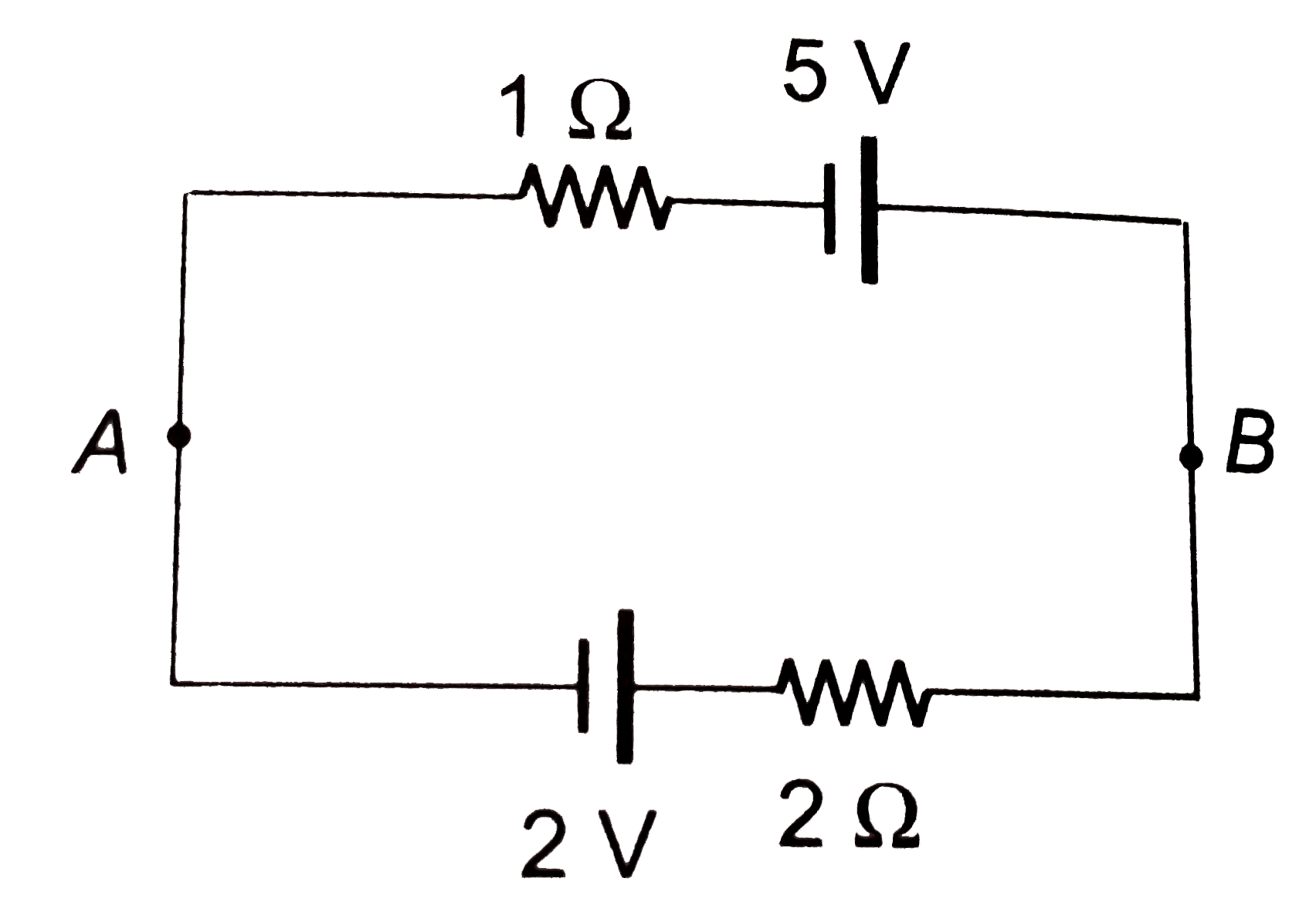 .
.
−1V
−2V
−3V
−4V
The correct Answer is:D
i=5−21+2=1A
VB−VA=5−i×1=5−1×=4V
VA−VB=−4V.
Topper's Solved these Questions
Similar Questions
A charge q=+1μC is held at 0 between two points A and B such that AO=2mandBO=1m Calculate the value of potential differences (VA−VB). What will be the value of potential differences (VA−VB) if position of B is charged as shown in Fig ?
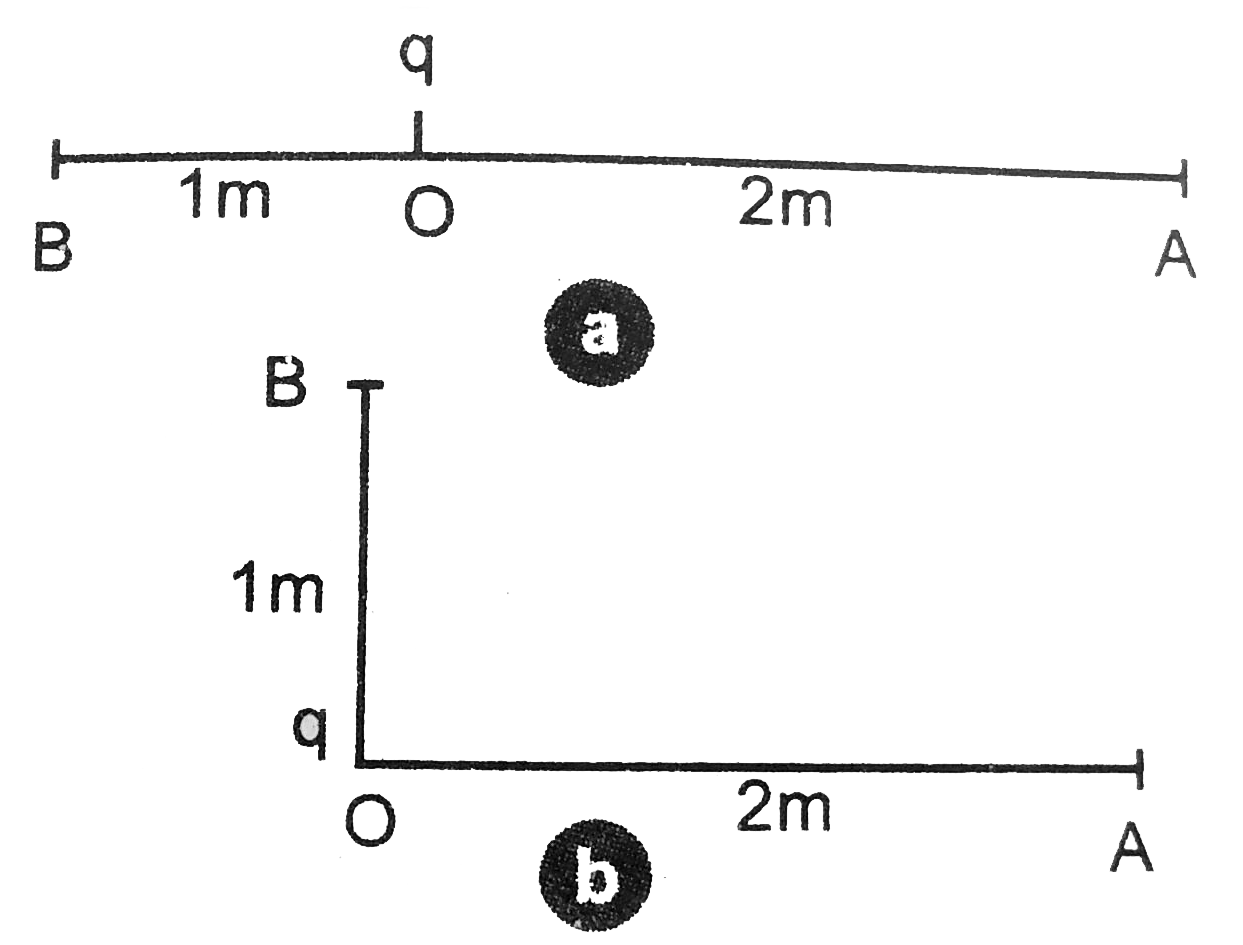 View Solution
View SolutionWhen an electron moves from A to B along and electric field line as shown in Fig. the electric field does 3.94×10−19J of work on it. What are the electric potential differences
(VB−VA),(VC−VA),(VC−VB) ?
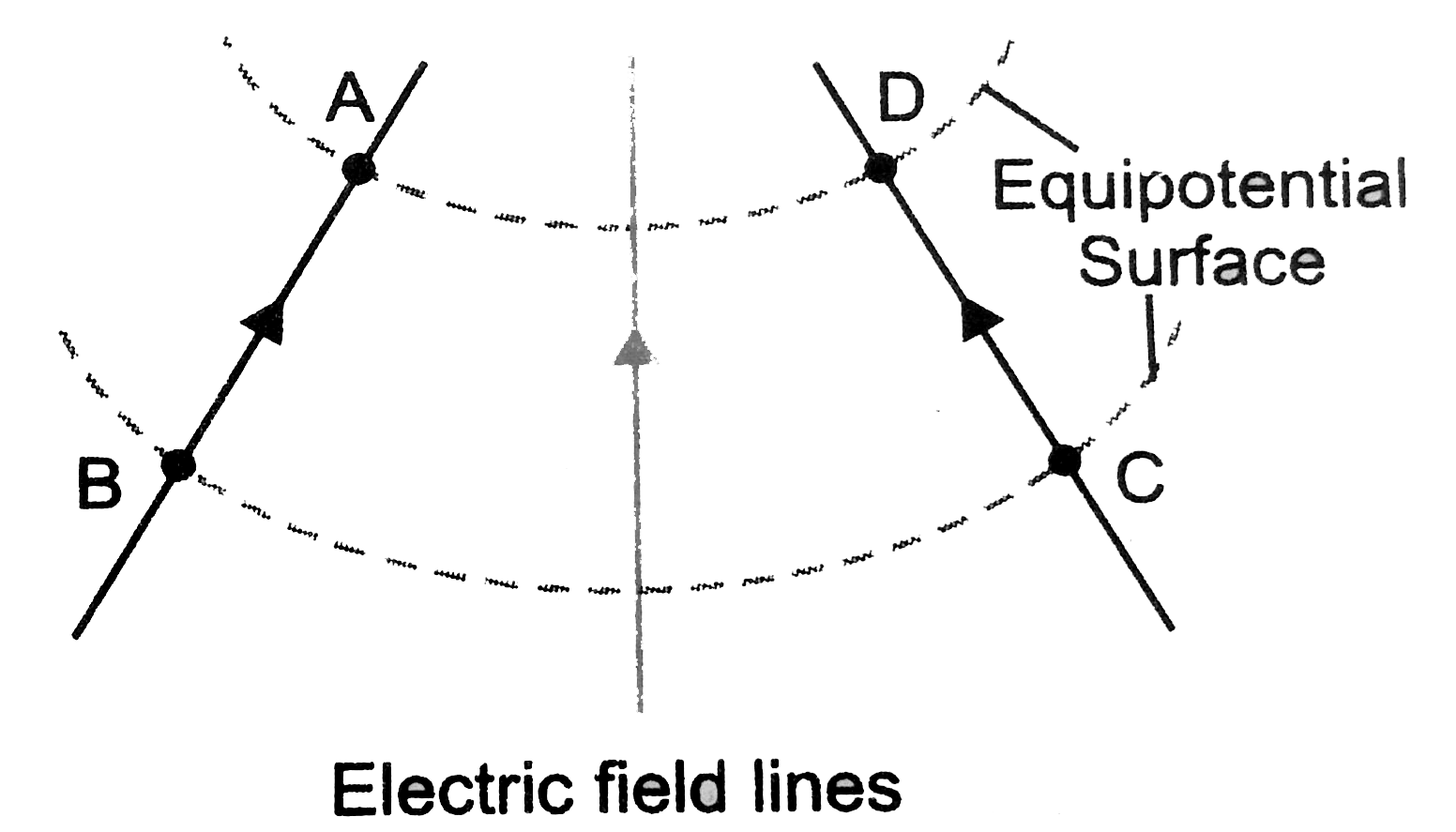 View Solution
View Solution
Knowledge Check
- Question 1 - Select One
The circuit consists of resistors and ideal cells. I1 and I2 are current through branches indicated in the figure, VA and VB is the potential at points A and B on the circuit
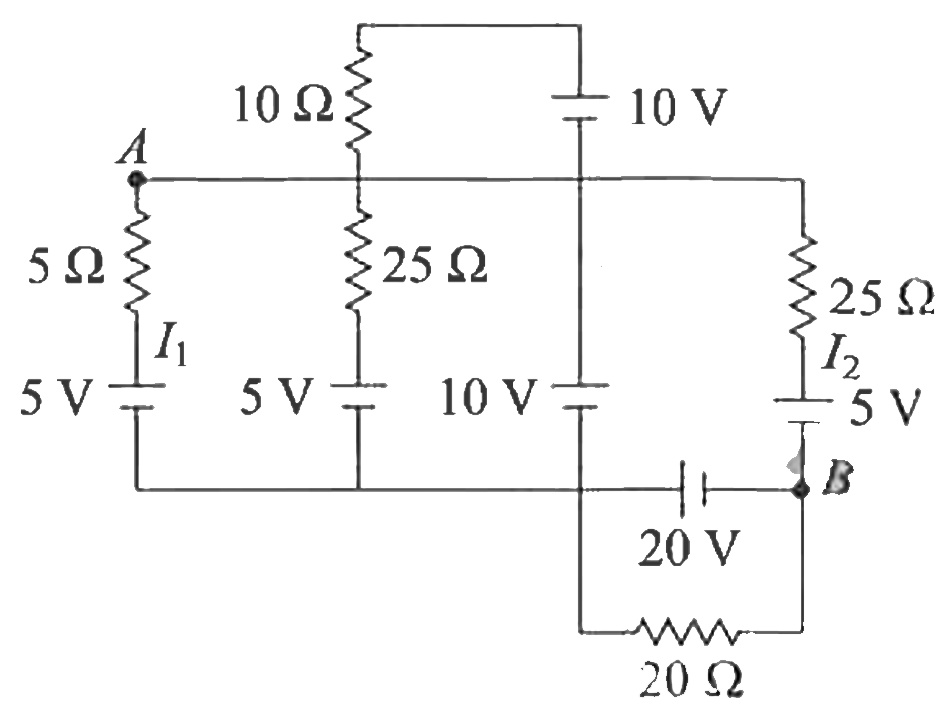
The value of VA−VB in volts is:A5B10C15D30 - Question 2 - Select One
Assertion : Two concentric spherical shells A and B are charged by charges qA and qB. If qA is negative, then VA−VB is also negative.

Reason : VA−VB=(qA4πε0)(1RA−1rB)
therefore, if qA is negative, then VA−VB is also negative.AIf both Assertion and Reason are true and Reason is the correct explanation of Assertion.BIf both Assertion and Reason are true but Reason is not correct explanation of Assertion.CIf Assertion is true but Reason is false.DIf Assertion is false but Reason is true. - Question 3 - Select One
Suppose population A has 100 observations101,102,...,200and another population B has 100 observatons 151 , 152,...,250. If VAandVB represent the variances of the two populations respectively, then VAVB is
A94B49C23D1
In the uniform electric field shown in figure, find :
a. VA−VD
b. VA−VC
c. VB−VD
d. VC−VD
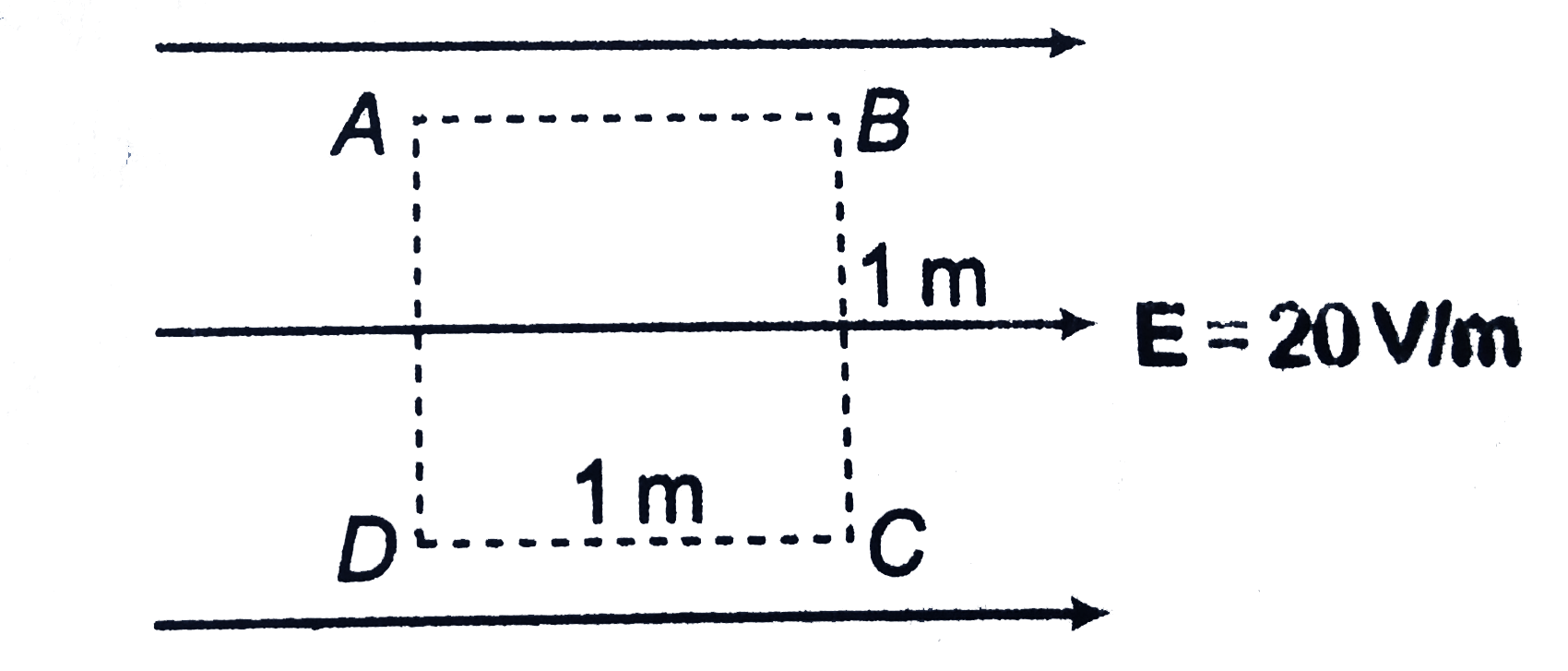 View Solution
View SolutionFind the equivalent resistance of the network shown in the figure between the points A and B if
(i) VA>VB (ii) VA<VB
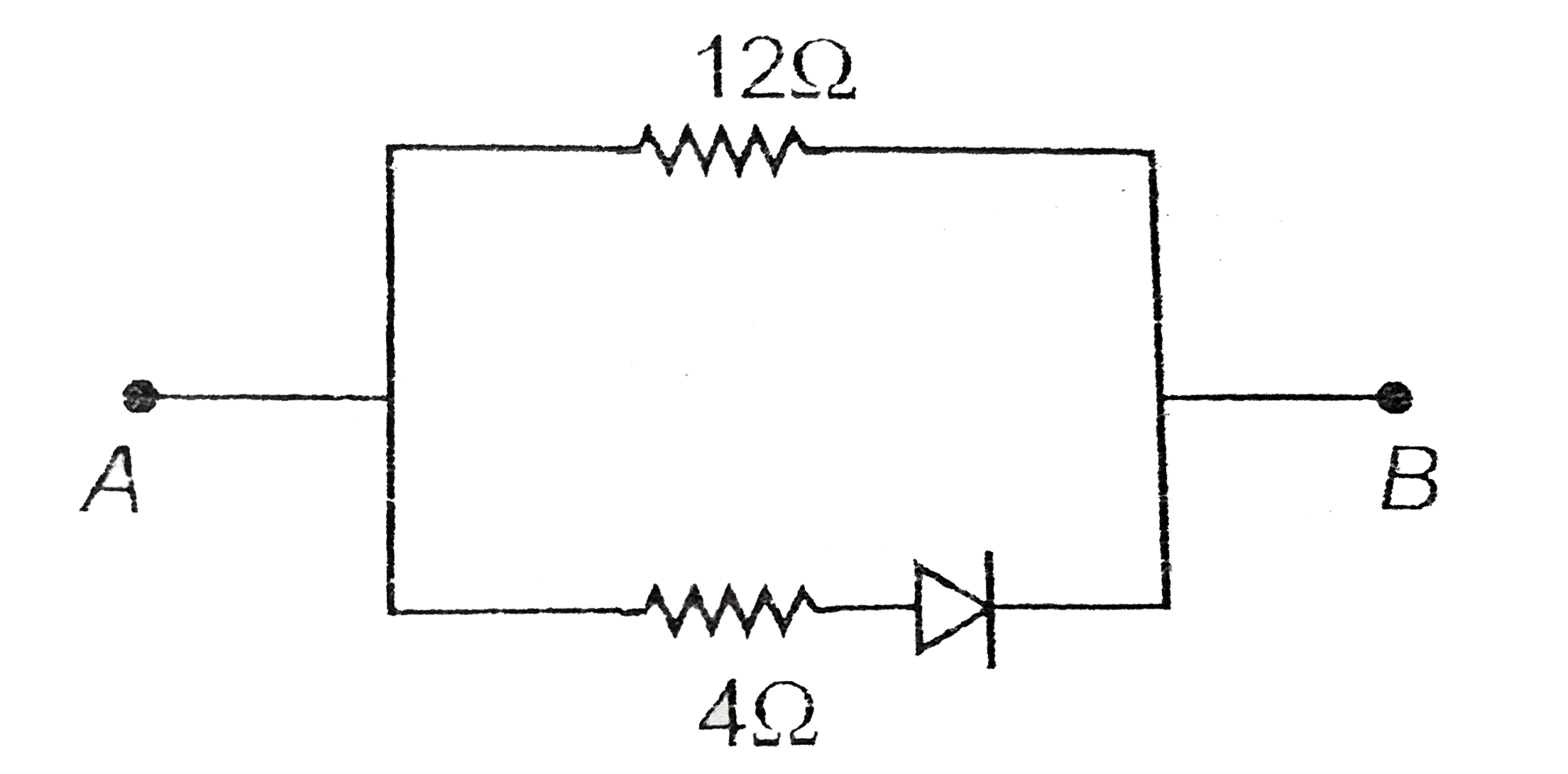 View Solution
View SolutionFig (a) and (b) show the field lines of a single positive and negative charges respectively .
Give the signs of the potential difference : VP−VQ,VB−VA
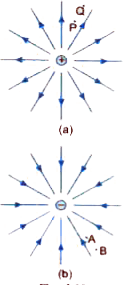 View Solution
View SolutionThe equation of state for real gas is given by ((p+aV2(V−b)=RT. The dimension of the constant a is ………………. .
View SolutionA, B, C, D, P, and Q are points in a uniform electric field. The potentials at these points are V(A)=2V.V(P)=V(B)=V(D)=5V, and V(C)=8V. Find the electric field at P.
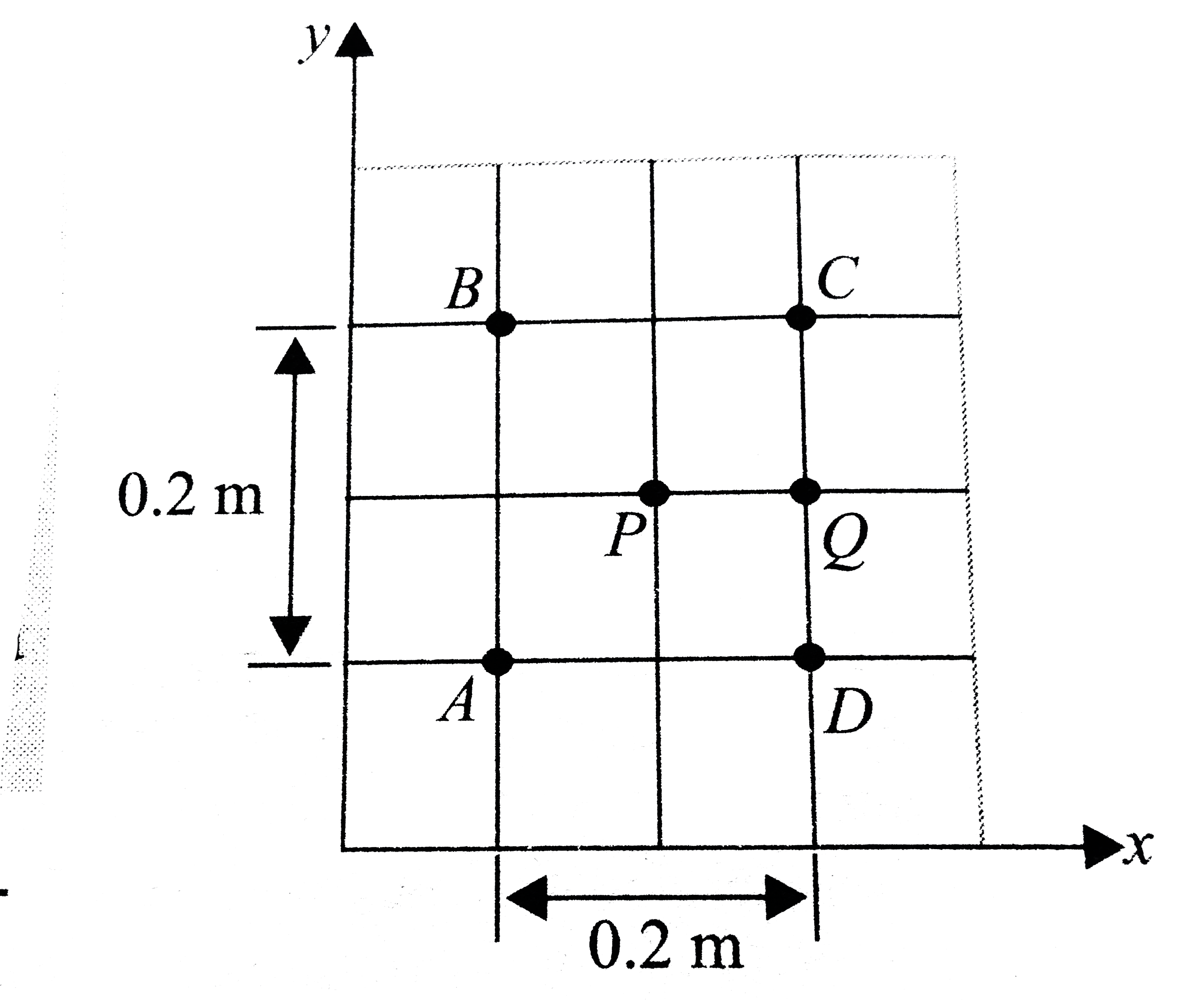 .View Solution
.View Solution
